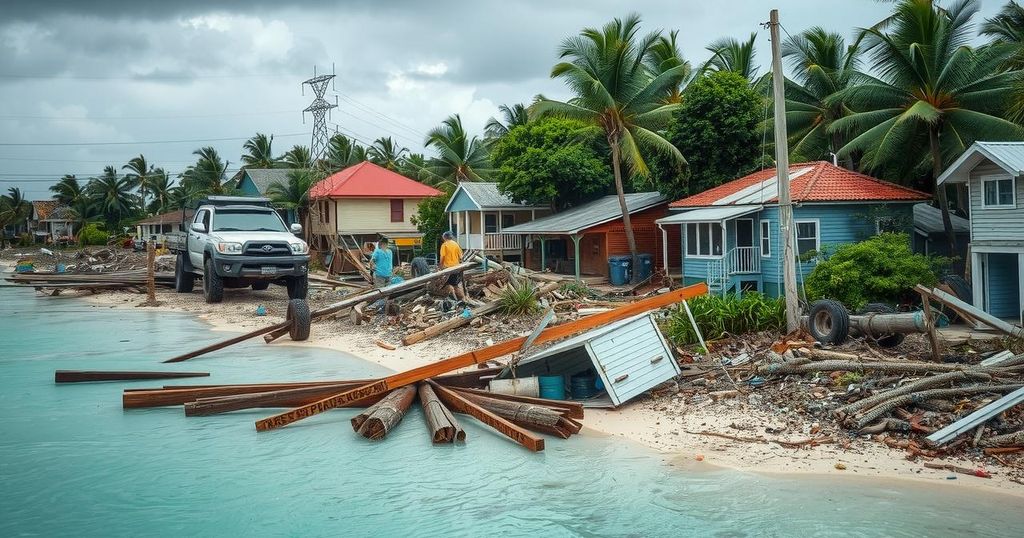Devastating Impact of Tropical Cyclone Chido on Mayotte: A Humanitarian Crisis
Tropical Cyclone Chido made landfall in Mayotte on December 14, 2024, becoming the strongest storm to hit the region in over 90 years. It resulted in at least 22 deaths and 1,500 injuries, with many still missing. The cyclone caused severe damage to critical infrastructure, worsening existing housing vulnerabilities, affecting approximately one-third of the population.
Tropical Cyclone Chido formed on December 5, 2024, in the southeast Indian Ocean, progressing to a moderate tropical storm with winds of 70 km/h by December 9. It intensified to a Category 4 cyclone with peak winds of 250 km/h on December 12. Chido struck Mayotte early on December 14, causing devastation with sustained winds at 225 km/h. As of December 18, the cyclone resulted in at least 22 fatalities and 1,500 injuries, with many individuals remaining unaccounted for. The storm, the most severe to impact Mayotte in over nine decades, inflicted substantial damage on vital infrastructure, including hospitals, roads, and the airport, while disrupting essential services such as electricity, water, and telecommunications. Approximately 40% of Mayotte’s housing was deemed vulnerable prior to the cyclone, exacerbating the destruction involving around 100,000 residents, constituting a third of the local population. Estimates suggest that the population of Mayotte may reach up to 520,000, factoring in undocumented individuals predominantly from Comoros.
The impact of Tropical Cyclone Chido on Mayotte represents a significant environmental and humanitarian crisis for the region. The cyclone developed rapidly, reaching catastrophic wind speeds that led to extensive destruction and loss of life. Given that Mayotte is already facing challenges with housing conditions, the cyclone’s arrival exacerbated existing vulnerabilities, raising urgent concerns regarding recovery and relief efforts in the aftermath of the disaster.
In conclusion, Tropical Cyclone Chido has emerged as a historic and devastating event for Mayotte, not only leading to a tragic loss of life but also highlighting the region’s existing vulnerabilities. The cyclone’s aftermath poses significant challenges for recovery, particularly regarding housing, infrastructure, and essential services. There is an anticipated need for comprehensive international support and humanitarian aid to assist the impacted communities in rebuilding and addressing ongoing needs.
Original Source: reliefweb.int




Post Comment